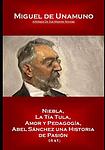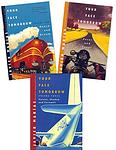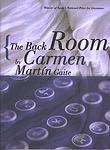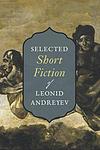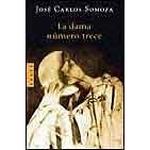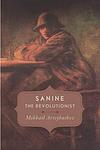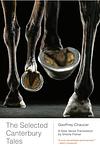The Greatest Russian, Spanish "Psychological, Fiction" Books Since 1900
Click to learn how this list is calculated.
This list represents a comprehensive and trusted collection of the greatest books. Developed through a specialized algorithm, it brings together 300 'best of' book lists to form a definitive guide to the world's most acclaimed books. For those interested in how these books are chosen, additional details can be found on the rankings page.
Genres
The Psychological genre of books typically explores the inner workings of the human mind and emotions, often delving into complex and sometimes disturbing psychological states. These books may focus on mental illness, trauma, relationships, or personal growth, and often challenge readers to confront their own beliefs and perceptions. Psychological books may be suspenseful, thought-provoking, and emotionally intense, offering readers a deep and often unsettling glimpse into the human psyche.
Countries
Date Range
Reading Statistics
Click the button below to see how many of these books you've read!
Download
If you're interested in downloading this list as a CSV file for use in a spreadsheet application, you can easily do so by clicking the button below. Please note that to ensure a manageable file size and faster download, the CSV will include details for only the first 500 books.
Download-
1. Petersburg by Andrei Bely
"Petersburg" is a symbolist novel set in the heart of Russia during the 1905 Revolution. It follows the story of a young man who is given the task of assassinating his own father, a high-ranking government official, by a radical political group. The narrative is a complex mix of politics, family drama, and philosophical introspection, all set against the backdrop of a city in turmoil. The novel is renowned for its vivid and poetic descriptions of the city itself, making Petersburg as much a character in the story as the people who inhabit it.
-
2. The Hive by Camilo José Cela
"The Hive" is a novel set in post-Civil War Spain, during the harsh years of Madrid's postwar recovery. It provides a gritty and realistic portrayal of the struggles faced by ordinary citizens in a society marked by deprivation and repression. The narrative is non-linear and fragmented, featuring a vast array of characters from various social classes, whose lives intertwine in a depiction of the bleakness and despair of the time. The book was initially banned in Spain due to its critical view of Franco's regime.
-
3. Solitude by Caterina Albert
"Solitude" is a novel that explores the life and struggles of a young woman living in a rural Catalan village. The protagonist is a strong-willed, independent woman who defies societal norms and expectations, leading to friction with her conservative community. The narrative examines themes of gender, societal pressures, and the struggle for personal freedom, providing a powerful critique of rural life and patriarchal society.
-
4. A Heart So White by Javier Marías
The novel delves into the complexities of relationships, secrets, and communication as the protagonist, a translator and interpreter, grapples with the mysterious suicide of his father's first wife and the pervasive silence surrounding it. Through his own marriage and his observations of others', he contemplates the unsaid and the power of words, both spoken and unspoken. The narrative weaves through time and memory, exploring the impact of the past on the present and the intricate ways in which people understand and misunderstand each other.
-
5. The Real Life of Sebastian Knight by Vladimir Nabokov
"The Real Life of Sebastian Knight" is a novel centered around the protagonist's quest to understand and write a biography about his deceased half-brother, a famous author. However, as he delves deeper into his brother's life, he encounters numerous obstacles and confusions, including misleading information, false leads, and the challenge of distinguishing between the man and his literary persona. Ultimately, the protagonist's journey becomes a profound exploration of identity, truth, and the blurred line between fiction and reality.
-
6. Abel Sánchez by Miguel de Unamuno
The book is a profound exploration of envy and its corrosive effects on the human soul, told through the lifelong rivalry between two friends. The protagonist, whose artistic ambitions and personal happiness are overshadowed by his obsessive jealousy of his friend's success and innate talent, descends into a destructive spiral of resentment. This dark passion not only poisons his own life but also impacts those around him, leading to tragic consequences. The narrative delves deep into the psychological complexities of its characters, offering a timeless meditation on the nature of envy and the human condition.
-
7. The Clay Machine-gun by Victor Pelevin
"The Clay Machine-gun" is a surreal and complex novel that explores the nature of reality and illusion. The story is set in post-Soviet Russia and follows a protagonist who has multiple identities, including a poet in 19th-century Russia, a 20th-century psychiatric patient, and a 21st-century advertising executive. The narrative moves between these identities and realities, blurring the lines between them and creating a layered and philosophical exploration of Russian society, identity, and the human psyche.
-
8. The Club Dumas by Arturo Pérez-Reverte
The book follows Lucas Corso, a book detective who is hired to authenticate a rare manuscript by Alexandre Dumas. As he delves into the investigation, he finds himself entangled in a mystery involving two other books: a rare edition of "The Three Musketeers" and a satanic text, "The Book of Nine Doors of the Kingdom of Shadows". The narrative becomes a complex puzzle as Corso uncovers connections between the books, while also dealing with a seductive woman who seems to have stepped out of a Dumas novel, a mysterious killer, and a group of bibliophiles obsessed with Dumas. The lines between fiction and reality blur as he gets closer to the truth.
-
9. Time of Silence by Luis Martín-Santos
"Time of Silence" is a complex narrative that follows the life of a young doctor living in Madrid during the Franco regime. Throughout the novel, he becomes embroiled in a series of unfortunate events, including an affair with a married woman, which leads to tragic consequences. The novel is known for its innovative narrative techniques and its critical depiction of the moral and political climate of Spain under Franco's rule.
-
10. Nada by Carmen Laforet
"Nada" is a novel that follows the life of a young woman who moves to Barcelona to attend university after the Spanish Civil War. She stays with her eccentric relatives who live in a grand, but decaying mansion. The protagonist struggles to find her identity and independence while dealing with poverty, repression, and the emotional instability of her relatives. The story is a powerful exploration of despair, alienation, and the loss of innocence.
-
11. Your Face Tomorrow: Fever and Spear by Javier Marías
The novel explores the life of a Spanish expatriate in England who is recruited by a secretive organization due to his unique ability to interpret people's behavior. As he becomes entangled in a world of espionage, he grapples with moral and ethical dilemmas, questioning the validity of his work and the consequences of his actions. Through a blend of introspective musings and suspenseful narrative, the protagonist's life unravels, revealing a complex web of deceit, betrayal, and violence.
-
12. The Back Room by Carmen Martín Gaite
"The Back Room" is a surreal narrative that blurs the lines between reality and imagination. The story revolves around a female writer who is visited by a mysterious stranger in the middle of the night. The stranger triggers a series of memories and dreams, transporting her back to her childhood during the Spanish Civil War. As the protagonist delves deeper into her past, she begins to question the nature of her reality, resulting in a psychological exploration of memory, identity, and the power of storytelling.
-
13. Little Devil by Fedor Sologub
"Little Devil" is a dark and symbolic tale set in pre-revolutionary Russia, exploring the themes of evil and corruption through the eyes of a young boy. The protagonist, an outcast in his rural village, is both tormented and fascinated by the malevolent forces he perceives around him. As he delves deeper into his own imagination and the sinister aspects of human nature, the line between reality and fantasy blurs, leading to a series of tragic events. The novel delves into the psychological and moral decay of its characters, reflecting the broader societal decay of the time.
-
14. The Luzhin Defense by Vladimir Nabokov
The novel centers around a Russian chess prodigy whose life becomes consumed by the game of chess. As he rises to international fame, his obsession with chess leads to a detachment from reality and a decline in his personal life. The protagonist's intense focus on chess strategies begins to invade his perception of the world, blurring the boundaries between the game and his own existence. This culminates in a psychological crisis during a critical championship match, where the line between his mental breakdown and a sophisticated defense strategy becomes indistinguishable, reflecting the protagonist's struggle to maintain his sanity amidst the all-consuming nature of his passion.
-
15. Child 44 by Tom Rob Smith
In a 1950s Soviet Union gripped by fear and paranoia, Leo Demidov, a dedicated officer of the state security agency, is faced with a chilling reality: a series of brutal child murders that the government refuses to acknowledge. As Leo defies his superiors and embarks on a dangerous investigation, he becomes entangled in a web of political intrigue and personal danger, risking everything to uncover the truth and protect those he loves. "Child 44" is a gripping thriller that explores the dark underbelly of a repressive regime and the resilience of one man determined to bring justice to a society plagued by secrets.
-
16. Creatures that Once Were Men by Maxim Gorky
"Creatures that Once Were Men" is a collection of short stories that depict the harsh realities of life in the lower classes of Russian society. The stories are set in a night refuge for the homeless, where the characters, despite their grim circumstances, strive to maintain their humanity. Through their struggles, the author explores themes of poverty, addiction, despair, and the human spirit's resilience.
-
17. The Seven Who Were Hanged by Leonid Andreyev
This book is a poignant exploration of the human condition through the lens of seven individuals condemned to death. As the narrative unfolds, it delves into the innermost thoughts and emotions of these characters, each facing their imminent execution for various crimes, ranging from political offenses to personal transgressions. The story is a profound meditation on life, death, and the arbitrary nature of fate, revealing how the prospect of the gallows brings out the most intimate fears, regrets, and reflections in those awaiting their final moments. Through its vivid character studies, the work presents a stark commentary on the justice system and the moral complexities of capital punishment.
-
18. La Dama Número Trece by José Carlos Somoza
This novel is a thrilling blend of mystery, horror, and fantasy, revolving around a struggling writer who becomes the target of a secret society known as "The Thirteen Ladies". These shadowy figures have the ability to manipulate reality through the power of words and storytelling. As he is drawn deeper into their world, he must uncover their secrets and find a way to survive their deadly games. The narrative is a rich exploration of the power of language and mythology, with a suspenseful plot that keeps readers on the edge of their seats.
-
19. The Time: Night by Ludmila Petrushevskaya
The book is a stark portrayal of the struggles faced by a multi-generational family living in the cramped quarters of a Moscow apartment during the twilight years of the Soviet Union. The narrative is driven by the matriarch, a poet who is both resilient and weary, as she navigates the complexities of caring for her mentally unstable daughter and her neglected grandson. The story delves deep into themes of maternal sacrifice, poverty, and the relentless passage of time, painting a grim picture of domestic life and the burdens of womanhood in a society that is as unforgiving as it is oppressive.
-
20. Sanin by Mikhail Artsybashev
This novel is a controversial work that delves into the life and philosophies of its protagonist, a young man who embodies the principles of free love and rejects the conventional moral values of society. Set in the Russian Empire at the turn of the 20th century, the narrative explores themes of individualism, hedonism, and the pursuit of personal happiness above societal norms. The protagonist's radical views and actions challenge the traditional moral fabric and provoke reflection on the nature of freedom, love, and the constraints imposed by society. The book sparked significant debate upon its release due to its candid portrayal of sexuality and its critique of established social mores.
-
21. Selected Tales by Leonid Andreyev
"Selected Tales" is a compilation of short stories that delve into the depths of human emotion and existential despair. The collection showcases the author's fascination with the darker aspects of the human psyche, exploring themes such as death, madness, and the search for meaning in a seemingly indifferent universe. Through a blend of realism and symbolism, the stories present a poignant commentary on the human condition, often highlighting the tragic ironies and complexities of life. The author's vivid prose and ability to evoke intense atmospheres make this anthology a profound reflection on the struggles of the soul and the moral dilemmas faced by individuals in times of crisis.
-
22. The Infatuations by Javier Marías
A young woman becomes obsessed with a seemingly perfect couple she often sees at a café. When the husband is brutally murdered, she gets entangled with the widow and a mysterious man who knew the couple, leading her to question everything she thought she knew about love, death, and fate. As she delves deeper into the circumstances surrounding the husband's death, she is forced to confront unsettling truths about the nature of human relationships.
-
23. The Invisible Guardian by Dolores Redondo
This gripping novel unfolds in the misty and myth-shrouded Baztan Valley of Navarre, Spain, where a detective returns to her hometown to investigate a series of eerie murders. The victims, teenage girls, are found in a state that suggests ritualistic killings, drawing the detective into a complex web that ties the present crimes to her own troubled past. As she delves deeper, local superstitions and family secrets emerge, challenging her rational beliefs and forcing her to confront the possibility that the answers she seeks might be as intangible as the mythical Basajaun, the invisible guardian of the forest. The story masterfully blends elements of crime, folklore, and psychological thriller, creating a suspenseful narrative that keeps the reader guessing until the very end.
Reading Statistics
Click the button below to see how many of these books you've read!
Download
If you're interested in downloading this list as a CSV file for use in a spreadsheet application, you can easily do so by clicking the button below. Please note that to ensure a manageable file size and faster download, the CSV will include details for only the first 500 books.
Download




